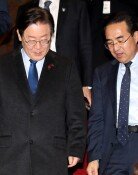[Opinion] Treating Business Associates
[Opinion] Treating Business Associates
Posted April. 09, 2003 22:01,
During the World Cup games last year, some of large businesses invited foreign clients to VIP lounges and treated them with good dishes as well as exciting football games. It was a rather refreshing scene given that most of the so-called business treats had taken place in high-class bars. Business treats are subject to tax exemptions worldwide, viewed as business-related expenses. Seeking to evade heavy tax burden, therefore, businesses often exaggerate the amounts they spend on business treats.
Leading foreign firms are also treating their business associates. The most common way of doing it in the U.S. and Europe is inviting them to sports games. It has become almost a rule for financial service firms in the Wall Street to take their business associates to ball games such as baseball and basketball. It takes about $100 to $200 per person. Yet, there are much expensive treats as well. It costs about $700 per person if they are to take their guests to a Premier League football game. They have to pay up to $6,000 for a final. According to latest statistics, British firms spent as much as $900 million in 2000 on treating business associates using sport events. The most common sport event was golf rounding, followed by horseracing, football and culture and art events.
In Korea, business treats mostly carry negative images. They are done in high-class bars. And people tend to think business treats are a way of buying business deals in an tricky way. While business associates refer to partners in equal terms in the U.S. and Europe, the relationship in Korea is seen as one between large businesses and small vendors. When firms are on the brink of bankruptcy, they sometimes spend even more on business treats. Chairman of S Group, which recently went belly up, spent as much as 3.52 billion won on treating business associates before arrested by investigators. It is estimated that a Korean firm spends average 1,900 won for a 1 million won-worth deal. And the annual total reaches up to 5 trillion won.
The National Tax Service recently announced that it would not consider money spent at golf courses and bars business treats. Such a decision has more or less been expected since the presidential transition committee pinpointed the practice of business treats as a source of corruption. Civic organizations are welcoming the decision, but businesses are complaining since they have to pay more taxes. Some raise concern that firms might resort to fake receipts. In a capitalist society where people and organizations look for their own interests, the business treat culture is more like a necessary evil. There are even government-level lobbies. The government`s role, then, must help firms establish sound and healthy business culture as transparency becomes a new mantra.
youngkim@donga.com







